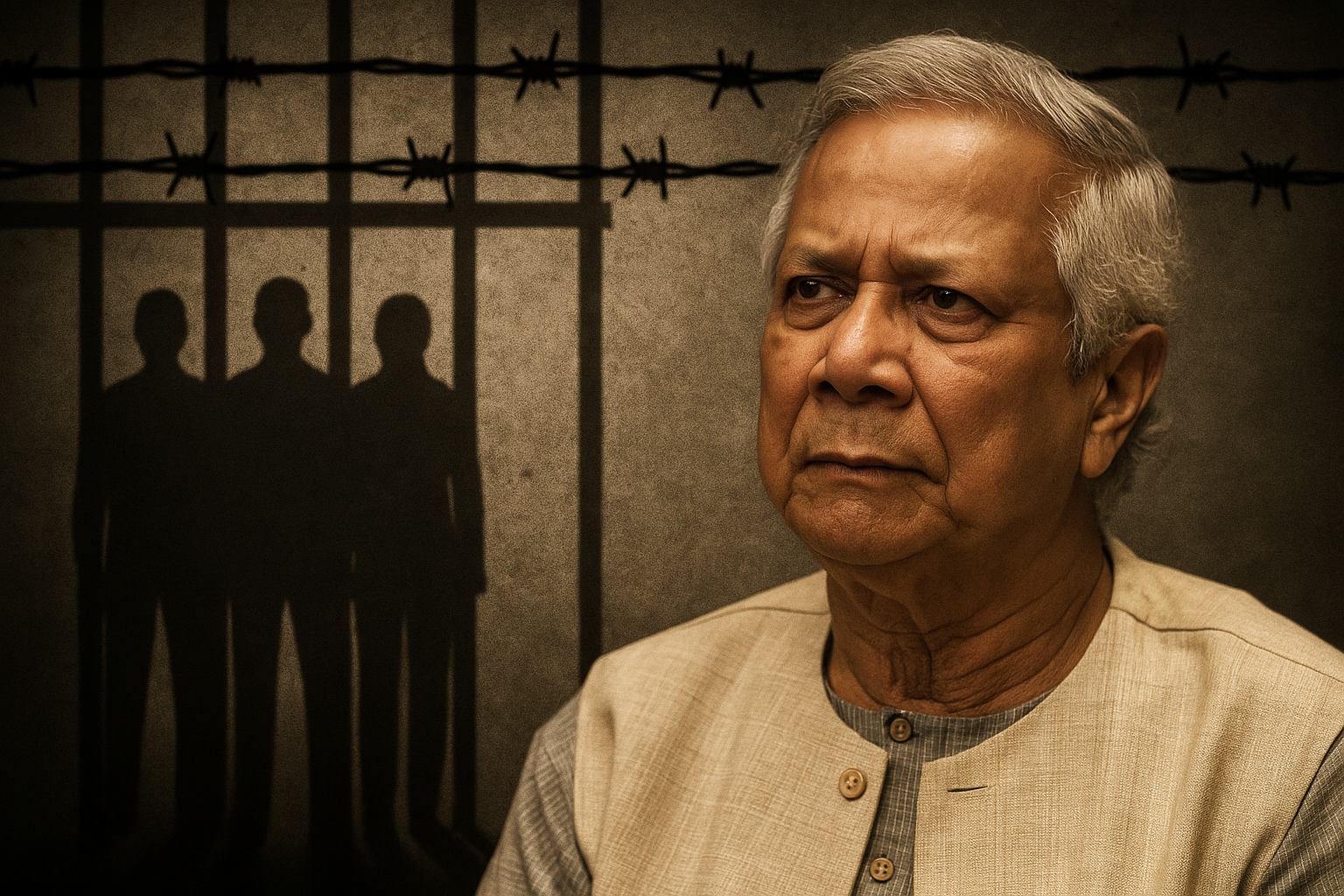Bangladesh’s Interim Govt Silent Over Communal Violence: Is It Complicit In Hurting Minorities?

Image Courtesy: AI-generated picture via OpenAI’s DALL·E
Communal violence in Bangladesh has intensified in recent months, fuelled not just by localised failures but by what appears to be a systematic absence of state protection. Under the interim government led by Muhammad Yunus, attacks on minorities have grown in frequency and scale, while official responses have been characterised by silence, denial and deflection.
What emerges is a troubling picture of deliberate neglect. Rather than simply lapses in governance, the failure to protect vulnerable groups suggests a deeper complicity, one that emboldens perpetrators and erodes trust in national institutions.
How is state neglect enabling violence?
The starkest examples of abandonment come from those directly affected. When retired teacher Mrinal Kanti Chatterjee was killed in Bagerhat Sadar Upazila in August 2024, his daughter revealed that her parents had called both police and army units for help, but “none of them answered the calls”. Such accounts have become emblematic of the wider collapse of protection for minorities.
Between August 2024 and June 2025, rights groups recorded over 2,400 incidents of communal violence. Yet the government routinely avoids identifying them as religiously motivated. Instead, they are cast as politically driven attacks, a framing that diminishes the scale of minority persecution while giving cover for impunity.
The arrest of Hindu religious leader Chinmoy Krishna Das for advocating minority rights illustrates how dissent is punished. Facing sedition charges and unable to find legal representation due to threats against lawyers, his case has become a symbol of fear institutionalised within Bangladesh’s judiciary.
What role do police and politics play?
Bangladesh’s police force has been accused of moving from neglect to active complicity. In several attacks, including those in Rangpur district’s Aldadpur village, officers arrived on the scene only to claim that allegations of blasphemy against victims were “proven”. Such statements have provided mob violence with official validation rather than accountability.
The interim government’s political language has further entrenched the crisis. Muhammad Yunus has dismissed concerns about minority persecution as “exaggerated propaganda”, undermining not only victims’ testimonies but also the country’s constitutional obligations to safeguard all citizens.
Communal violence has also been driven by material incentives. The Hindu Buddhist Christian Unity Council estimates that 70–75 percent of attacks are linked to land grabbing, with state institutions accused of enabling or ignoring these seizures.
What are the regional and international consequences?
The impact of the violence is no longer contained within Bangladesh’s borders. India has repeatedly raised concerns, while international organisations are turning greater attention to the treatment of minorities. For a country once lauded for its democratic promise, the image of state-sanctioned persecution under a Nobel laureate’s interim leadership has inflicted serious reputational damage.
Official responses to outside criticism have been defensive, with the Yunus government accusing India of interference. Such rhetoric has done little to restore confidence among minorities, whose safety depends not on words but on the state’s willingness to act.
Why does this matter?
The crisis in Bangladesh is not defined by isolated flare-ups of violence but by the systematic erosion of state institutions that are supposed to guarantee equal protection. When distress calls go unanswered, when police justify mob killings, and when courts fail to defend those speaking out, the state itself becomes complicit.
For millions of Bangladesh’s minorities, the silence of the authorities is not neutral; it is existential. Unless this silence is broken, the future of pluralism in the country will remain under threat, with consequences that extend far beyond its borders.







